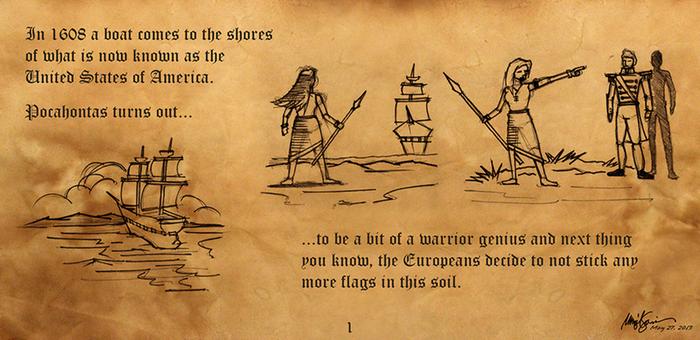








@Gilbert F.: "Does nature need humans?"
Personally, I feel that the minute we separate "humans" from "nature" we are going down a very slippery slope.
 3
3




Check out Redhawk's soil series: https://permies.com/wiki/redhawk-soil




 1
1




Excerpted from William Gillis' A Quick And Dirty Critique Of Primitivist & AntiCiv ThoughtWilliam Gillis wrote:...Humans are at present a weird inseparable jumble of Pleistocene creature and radically new stuff; we are a number of contradictions physiologically with no underlying objective directive baked in.
Those who can conceive of nothing beyond a very superficial naturalistic fallacy might say that humans are defined by serving some niche role as gears in a broader machine/ecosystem. But how do we go about determining what that role is from the vast variety of possible reads on it?
The ‘purpose’ of humanity might equally well be taken to be to serve as a cleansing virus — getting in a long-overdue mass extinction event so evolution can be sped up (there is after all no ecological imperative towards equilibrium). Or maybe the neotenic arc we’ve taken in retaining our childlike inquiry and creativity is an evolutionary catastrophe utterly at odds with the broader biosphere and we should all stop thinking, stop exercising our childlike inquiry, or even just kill each other off! Or maybe we’re the whole point of the sudden singularity of this Phanerozoic eon, a way for life to jump off this planet in a kind of ecological succession on the grandest scale, spinning up asteroids, seeding comets, rebuilding Mars from desolation, and turning the stars green.
Or maybe the relevant category isn’t what mere ecological niche we fill, but our existence as striving minds, dynamic neural networks modeling the world around them — as children struggling not to be vanquished by the sedentary, dying circuits of adults. Honestly I think this one rings the strongest...








“The most important decision we make is whether we believe we live in a friendly or hostile universe.”― Albert Einstein








“The most important decision we make is whether we believe we live in a friendly or hostile universe.”― Albert Einstein
 1
1












"wouldn't it be better to fix the mistakes before leaving the land to nature"












Another bunch of questions. For instance, of people went into a wild land and mimiced the arctic fox or the beaver, there would be outcry from everyone, and even I don't know if it would be a good idea. But certainly humans could improve any area that we have already degraded. Maybe human habitat is anywhere humans have messed things up? But that is circular.
Anyway, about other wild lands, yes, some of them might actually be degraded by non-human forces. Deserts, tundra, stony barren land. Is this degradation, or are these unique habitats?





o be so, this statement requires two things:
1. that we have enough knowledge to 'fix' what's wrong.
2. that we are separate from nature.
I suspect that neither of these presuppositions prove to be the case, yet.
Do Humans have an ecological niche (aka, the topic of this conversation)? Of course we do. We are lifeforms living in this world. Unfortunately, we can choose what that is... and referencing the above, we seem to have insufficient knowledge on how to do that in a way that benefits the majority of life on this planet.
Sometimes acting to fix a mistake is beneficial, other times it makes things worse, wisdom is knowing the difference. As a species, we have yet to display such wisdom.




duane hennon wrote:
o be so, this statement requires two things:
1. that we have enough knowledge to 'fix' what's wrong.
2. that we are separate from nature.
I suspect that neither of these presuppositions prove to be the case, yet.
Do Humans have an ecological niche (aka, the topic of this conversation)? Of course we do. We are lifeforms living in this world. Unfortunately, we can choose what that is... and referencing the above, we seem to have insufficient knowledge on how to do that in a way that benefits the majority of life on this planet.
Sometimes acting to fix a mistake is beneficial, other times it makes things worse, wisdom is knowing the difference. As a species, we have yet to display such wisdom.
so what do you propose?











duane hennon wrote:we seem to have insufficient knowledge on how to do that in a way that benefits the majority of life on this planet.
Idle dreamer

 1
1




duane hennon wrote:a change in earth's orbit
caused a change in weather patterns
that caused the expansion of the Sahara desert
it went from forest to grassland to desert
should we just leave it alone in order
for it to continue to expand its unique habitat?
 1
1




R Ranson wrote:Of course we do [have an ecological niche]. We are lifeforms living in this world. Unfortunately, we can choose what that is.





















“The most important decision we make is whether we believe we live in a friendly or hostile universe.”― Albert Einstein




Gilbert Fritz wrote:If we are running out of oil, how will we get to the asteroids?




Tyler Ludens wrote:Jason Godesky wrote a series of essays about it: https://theanarchistlibrary.org/library/jason-godesky-thirty-theses













“The most important decision we make is whether we believe we live in a friendly or hostile universe.”― Albert Einstein
 2
2




duane hennon wrote:
unless we're going to "depopulate" the planet, we're not going back to hunter/gardeners
Idle dreamer




... it´s about time to get a signature ...

| I agree. Here's the link: http://stoves2.com |



